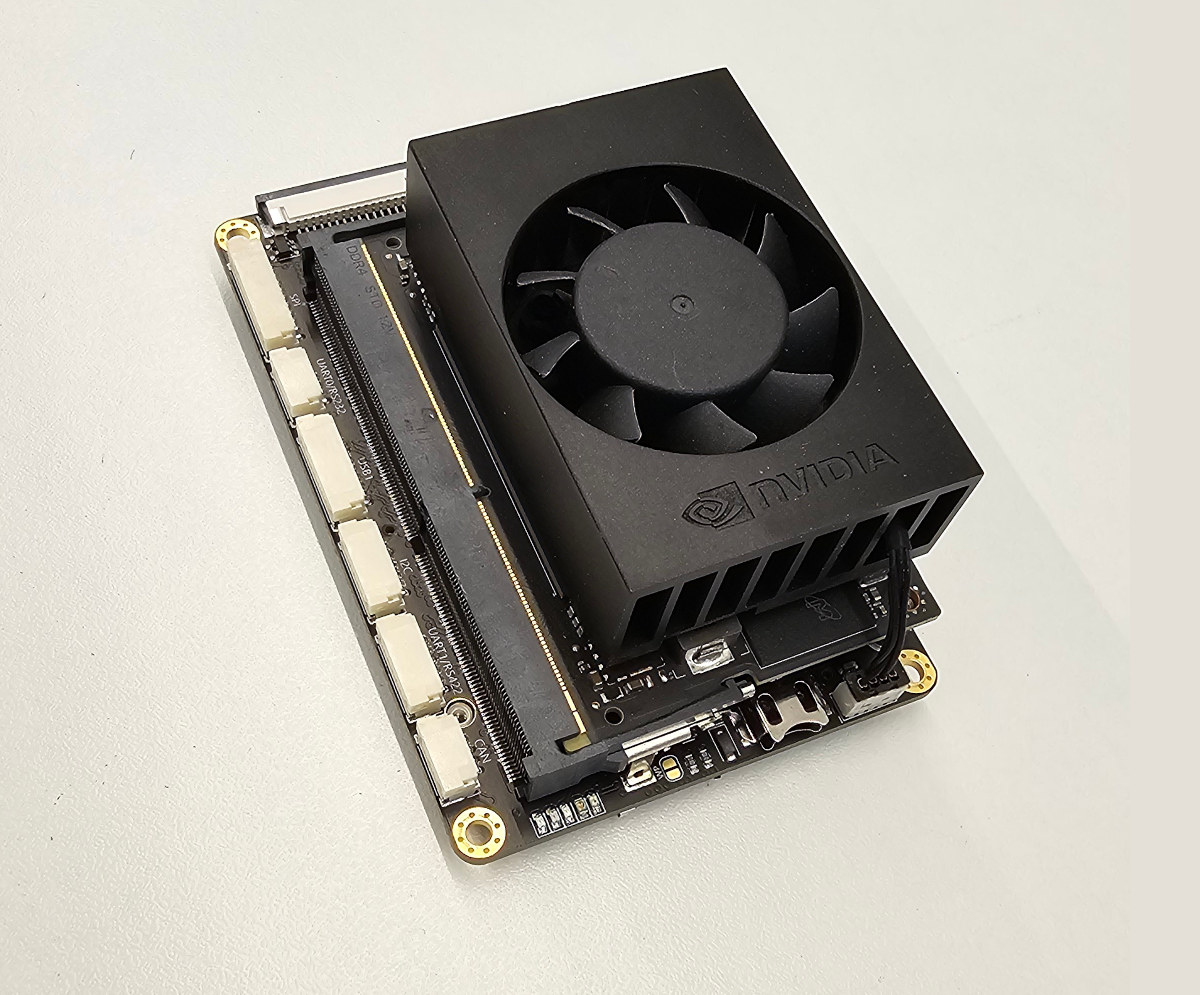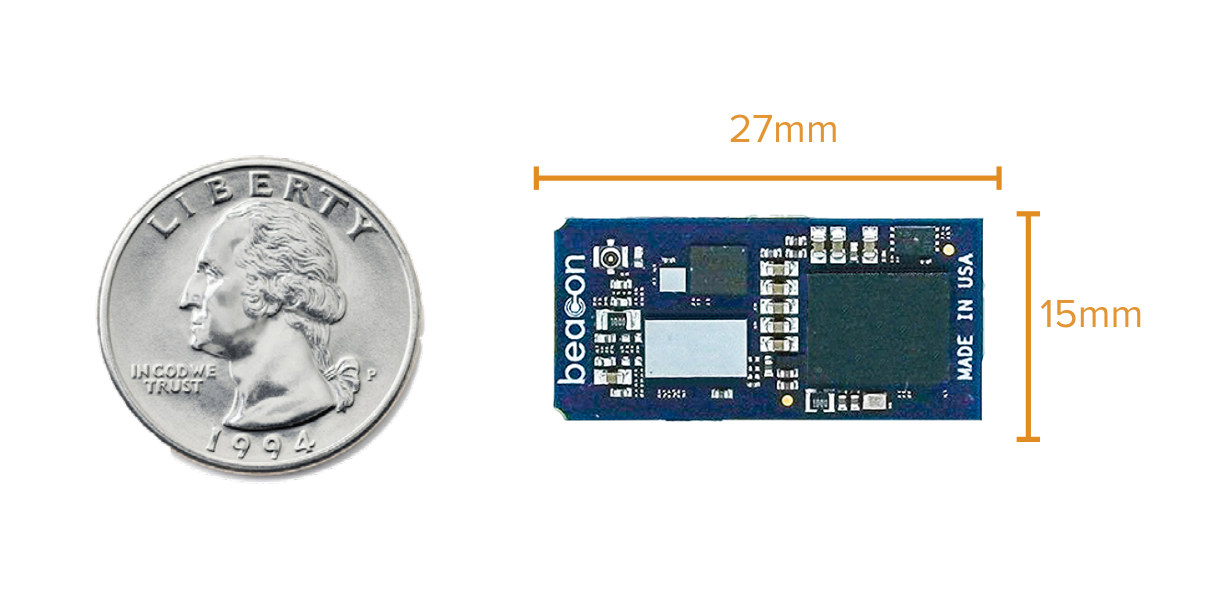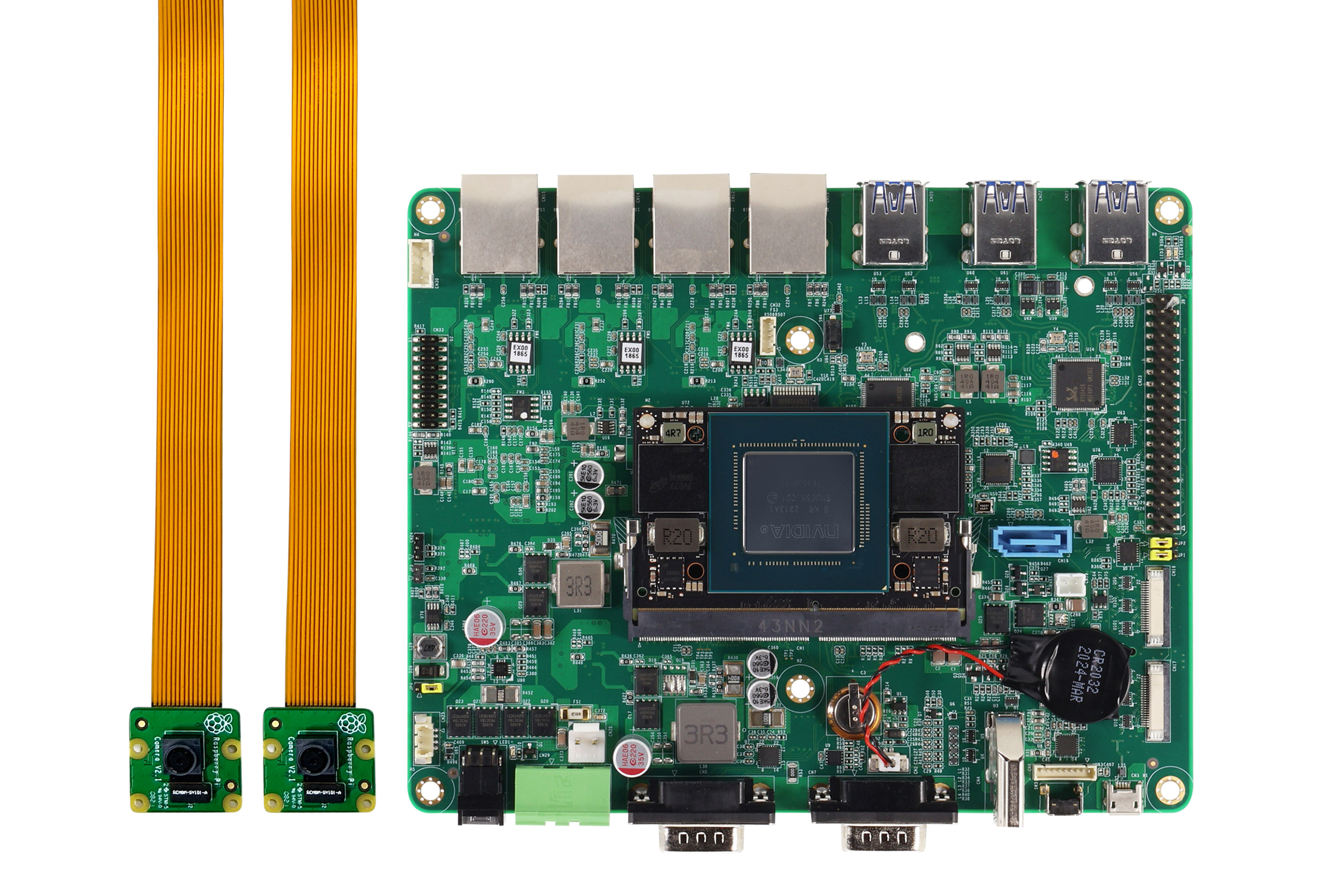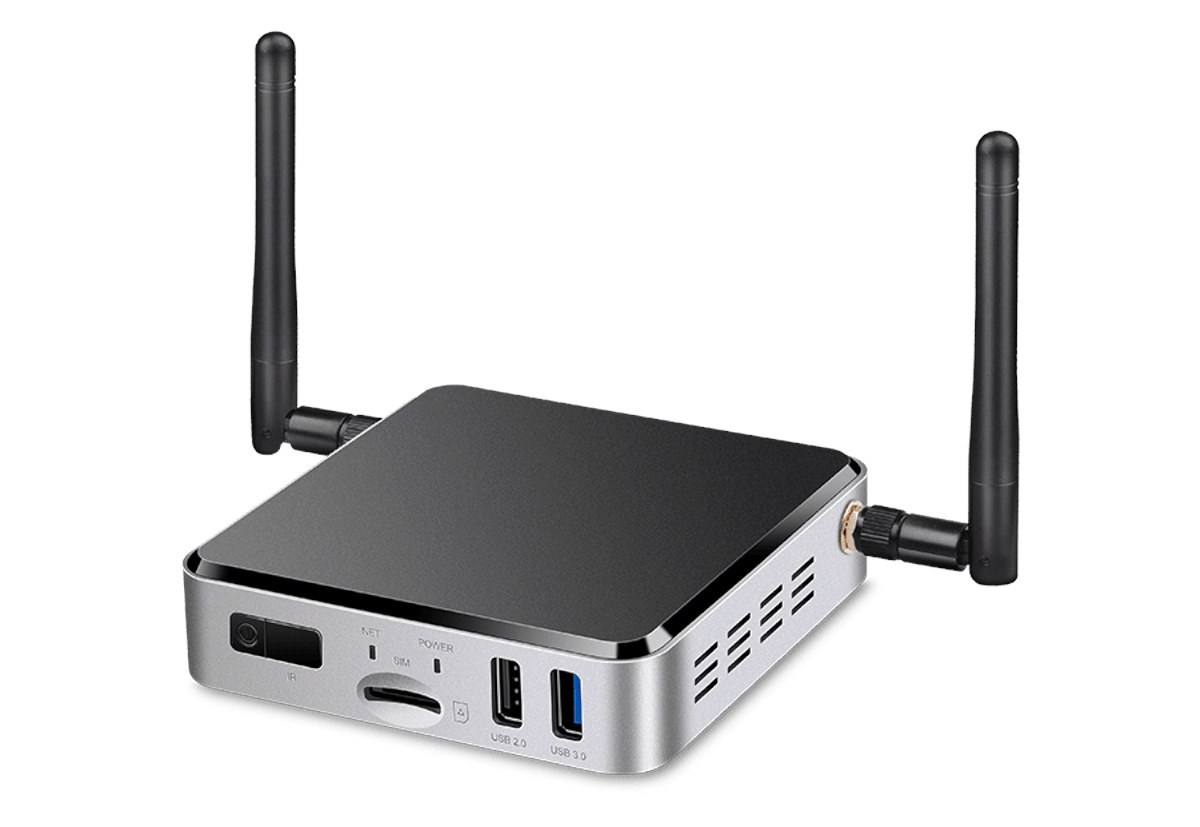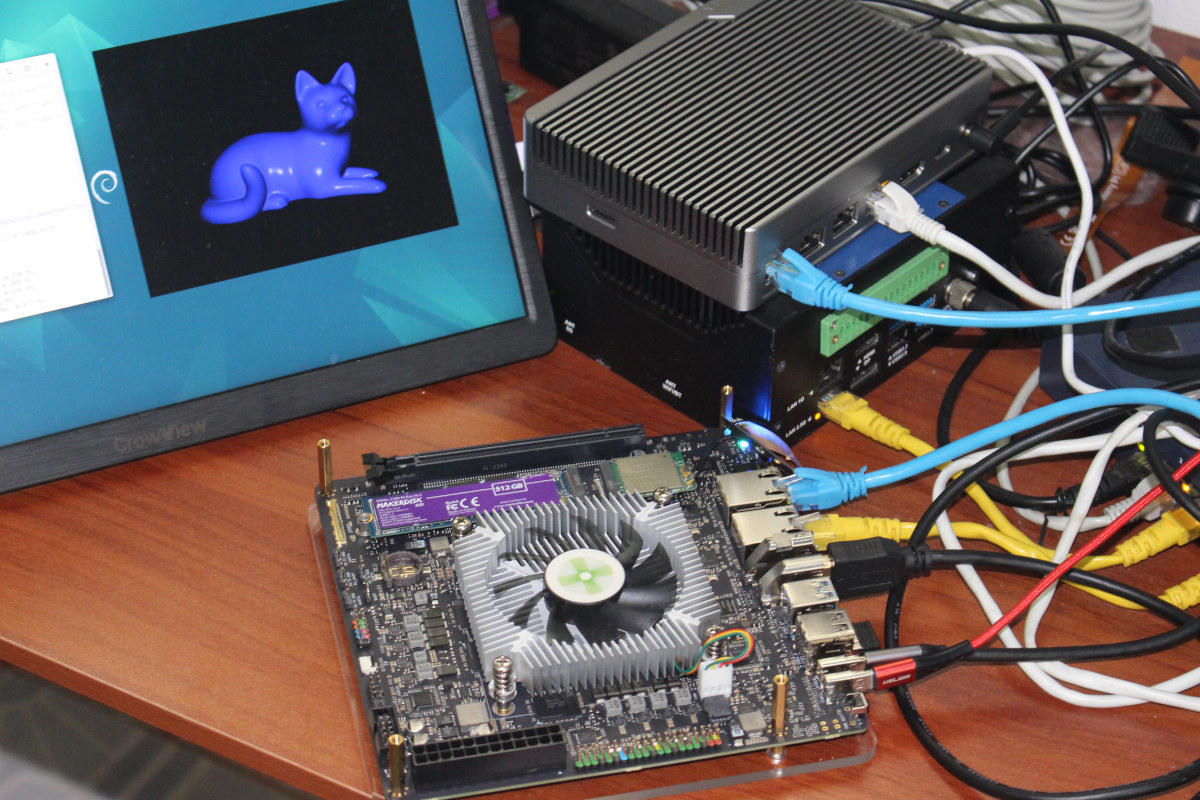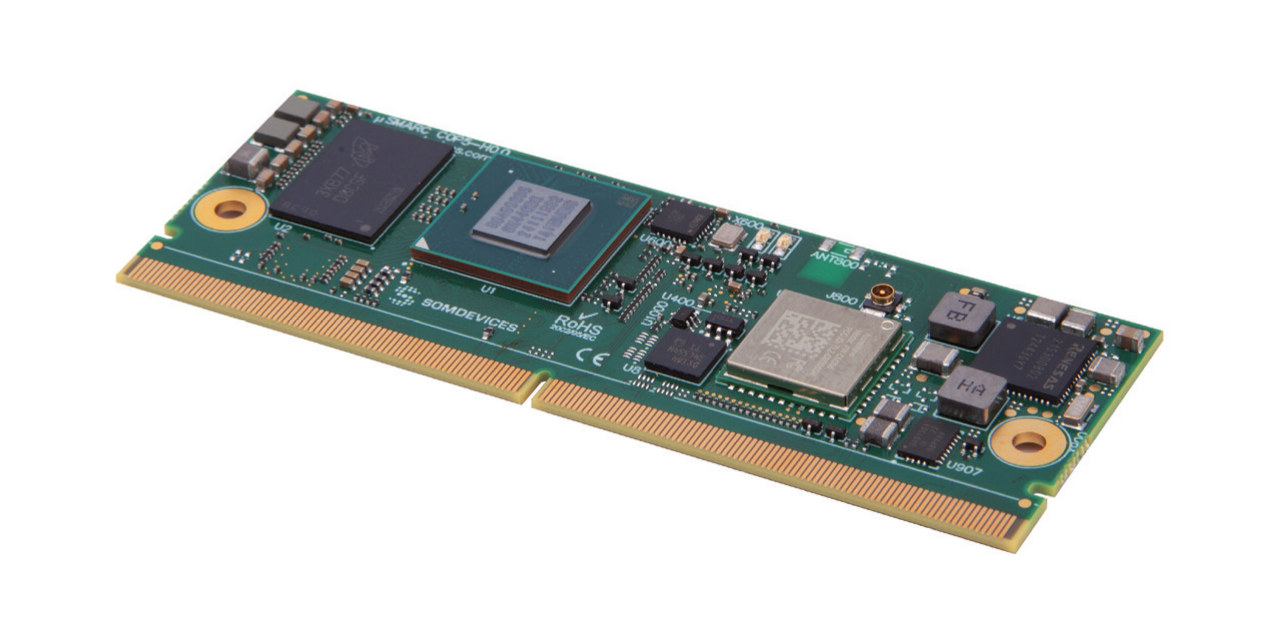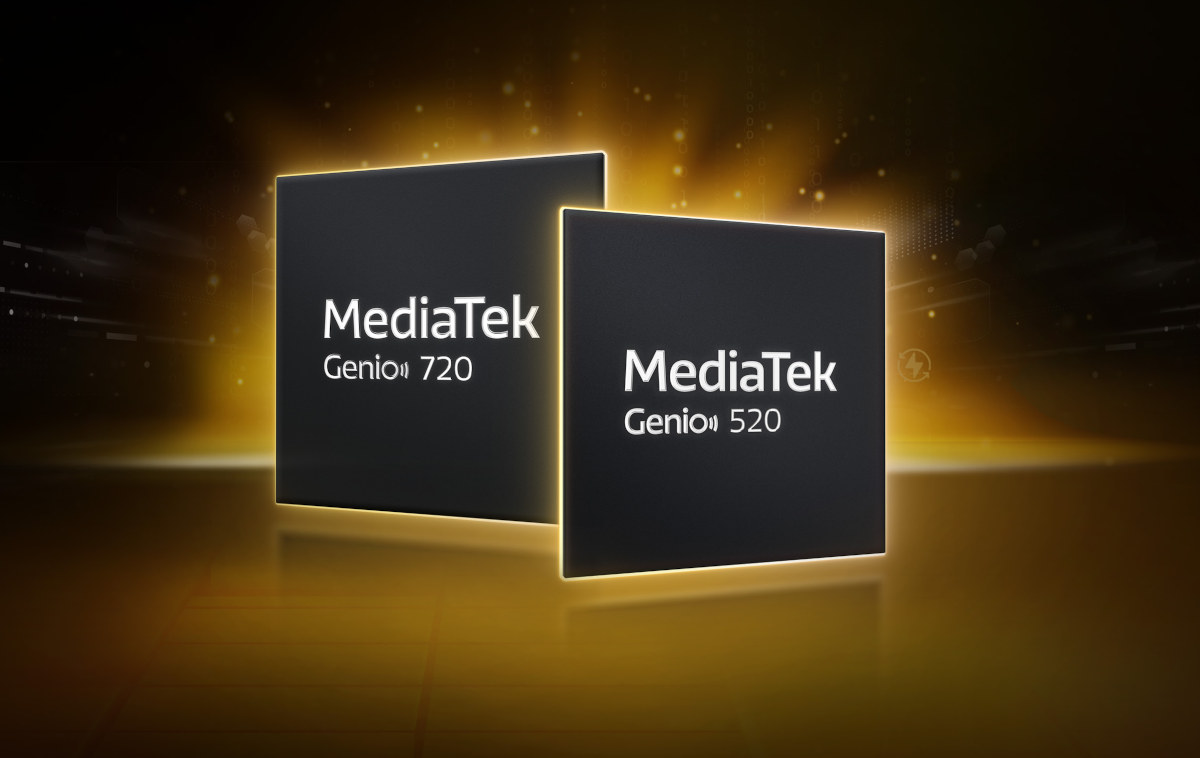ADLINK COM-HPC-mMTL is an industrial-grade COM-HPC Mini Computer-on-Module based on Intel Meteor Lake processors up to the 16-core Intel Core Ultra 7 165H featuring Intel Arc Graphics with eight Xe cores, Intel AI Boost NPU up to 8.2 TOPS, and 16x PCIE Gen4 lanes. The COM-HPC R1.2-compliant Mini size module also supports up to 64GB LPDDR5x memory soldered directly onto the board, an optional NVMe BGA SSD, and features two SATA interfaces, two 2.5 Gbps Ethernet, multiple DDI/USB4, and USB 3.0/2.0 through the standard 400-pin board-to-board connector of the 95x70mm CoM. ADLINK COM-HPC-mMTL specifications: Meteor Lake H/U SoC (one or the other) Intel Core Ultra 7 165H 16-core (6P+8E+2LPE) processor @ up to 5.0 / 3.8 / 2.5 GHz with 24MB cache, 8x Xe-cores Intel Arc graphics @ 2.35 GHz, Intel AI Boost NPU; TDP: 28W Intel Core Ultra 7 155H 16-core (6P+8E+2LPE) processor @ up to 4.8 / 3.8 […]
Aerium Lumen – An NVIDIA Jetson carrier board for drones and robots
Aerium System’s Lumen is a carrier board for NVIDIA Jetson SO-DIMM modules designed specifically for drones and robots with a range of low-profile connectors for I/Os for USB, UART, I2C, etc…, and three M.2 sockets for storage and wireless expansion. It targets the same applications as ARK Electronics’ NDAA-compliant Jetson Orin Nano/NX carrier board for drones we covered last year, but it’s not sold as a full kit and lacks NDAA-compliance. On the positive side, it is quite smaller and lighter, so it might be better suited to smaller and/or less complex drones or robots that may still benefit from Vision AI acceleration. Aerium Lumen specifications: Compatible system-on-modules NVIDIA Jetson Nano NVIDIA Jetson Orin NX NVIDIA Jetson Orin Nano NVIDIA Jetson Xavier NX NVIDIA Jetson TX2 NX Potentially other Jetson-compatible SO-DIMM modules like the Mixtile Core 3588E, but those are not listed by the company. Storage MicroSD card slot M.2 Key-B […]
Beacon W5+ SoM – A tiny (27x15mm) Qualcomm Snapdragon W5+ System-on-Module for wearables
Beacon EmbeddedWorks’ W5+ SoM is an ultra-compact (27×15 mm) system-on-module powered by the Qualcomm Snapdragon W5+ platform for wearables with a quad-core Cortex-A53 processor, a co-processor with an Arm Cortex-M55 core and an Ethos U55 ML accelerator, and WiFi 4 and Bluetooth 5.3 connectivity. The Snapdragon W5/W5+ wearables platforms were introduced in the summer of 2022, but so far, all I could find was a $2,000 devkit (TurboX W5+) suitable for ODM/OEM manufacturers. The upcoming Beacon W5+ SoM will be one of the first hardware solutions based on the Snapdragon W5+ platform designed for commercial applications. Beacon W5+ specifications: Platform – Snapragon W5+ SW5100P-0 SoC CPU – Quad-core Cortex-A53 processor @ up to 1.7 GHz GPU – Qualcomm Adreno A702 @ up to 1,010 MHz with OpenGL ES 3.1, Vulkan 1.0, OpenCL 2.0 API support DSP – Dual Qualcomm Hexagon DSP V66K ISP – Dual ISP VPU 1080p30 Video Decode […]
NV8600-Nano AI Developer Kit features NVIDIA Jetson Orin Nano 8GB, quad GbE, Raspberry Pi Camera Module 2
AAEON NV8600-Nano AI Developer Kit is based on a 67 TOPS NVIDIA Jetson Orin Nano 8GB and ships with a carrier board with quad GbE, a Raspberry Pi Camera Module 2, a fan kit (heatsink with fan), and a 60W power adapter. The carrier board is also equipped with a 256GB M.2 2280 M-key NVMe SSD, a SATA connector, HDMI 1.4 video output, two MIPI CSI connectors compatible with Raspberry Pi Camera Modules, six USB 3.2 Gen 2 Type A ports, a few serial interfaces, a 40-pin GPIO header compliant with the Jetson Orin Nano (Super) developer kit, and two more M.2 sockets for wireless/cellular expansion. NV8600-Nano AI Developer Kit specifications: NVIDIA Jetson Orin Nano 8GB Module CPU – 6-core Arm Cortex-A78AE v8.2 64-bit CPU @ 1.7 GHz with 1.5MB L2 + 4MB L3 GPU – 1,020 MHz NVIDIA Ampere architecture with 1024 CUDA cores and 32 tensor cores Video […]
Geniatech APC680 Edge AI and TV Box is powered by Synaptics VS680 AI SoC with 7.9 TOPS NPU
Geniatech APC680 is described as an “AI-powered TV box” powered by Synaptics VS680 quad-core Cortex-A73 SoC with a built-in 7.9 TOPS NPU and designed for smart entertainment and edge computing. The system comes with 4GB RAM and 16GB eMMC flash by default, 4K capable HDMI output and input ports, gigabit Ethernet, WiFi 5 and Bluetooth 5.0, a few USB ports, and a range of wireless options including 4G LTE, Zigbee, Z-Wave, and LoRa. Besides being just an AI-powered TV box, it could also be used as a Smart Home gateway in more ways than one. Geniatech APC680 specifications: SoC – Synaptics VS680 CPU – Quad-Core Arm Cortex-A73 processor GPU – Imagination PowerVR Series9XE GE9920 with support for OpenGL ES 3.2, OpenCL 1.2, Vulkan 1.1, and DirectFB VPU Up to 2160p60 decode with AV1, H.265, H.264, VP9, VP8, and MPEG-2 Up to 1080p60 encode with H.264, VP8 NPU – 7.9 TOPS with […]
Radxa Orion O6 Preview – Part 2: Debian 12 – What works, what doesn’t
I went through an unboxing and Debian 12 installation on the Radxa Orion O6 at the end of January, but decided to work on other reviews since software support still needed to be worked on. Since then, there’s been some work done, but no new image released. After waiting for almost two months, I’ve decided to carry on with the review by testing the Debian 12 image in a way similar to the Rock 5B SBC preview I did with Debian 11 in 2022 to check what works and what doesn’t on the Orion O6 at the time of the review. That will involve testing all ports, including 5GbE networking and the PCIe slot with an (old) NVIDIA graphics card, running some benchmarks, and also trying the Debian 12 image with a self-built Linux 6.13 kernel using ACPI instead of UEFI for the default image. Orion O6 SBC benchmarks on […]
SOMDEVICES µSMARC RZ/V2N system-on-module packs Renesas RZ/V2N MPU in a 82x30mm “micro SMARC” form factor
SOMDEVICES µSMARC RZ/V2N is a system-on-module powered by the Renesas RZ/V2N AI MPU and offered in a micro SMARC (µSMARC) form factor that’s quite smaller at 82x30mm than standard 82x50mm SMARC modules. The company told CNX Software it’s still 100% compatible with SMARC 2.1 with a 314-pin MXM 3.0 edge connector. It’s also cost-effective with a compact PCB and can be used in space-constrained applications. The µSMARC features up to 8GB LPDDR4, up to 128GB eMMC flash, two gigabit Ethernet PHY, and an optional WiFi 5 and Bluetooth 5.1 wireless module. µSMARC RZ/V2N specifications: SoC – Renesas RZ/V2N CPU Quad-core Arm Cortex-A55 @ 1.8 GHz Arm Cortex-M33 @ 200 MHz GPU – Arm Mali-G31 3D graphics engine (GE3D) with OpenGL ES 3.2 and Open CL 2.0 FP VPU – Encode & decode H.264 – Up to 1920×1080 @ 60 fps (Renesas specs, but SOMDEVICES also mentions up to 4K @ 30 […]
MediaTek Genio 720 and 520 AIoT SoCs target generative AI applications with 10 TOPS AI accelerator
The announcement of the MediaTek Genio 720 and Genio 520 octa-core Cortex-A78/A55 AIoT SoCs is one of the news I missed at Embedded World 2025. The new models appear to be updates to the Genio 700 and Genio 500 with a beefier NPU, and the Taiwanese company says the new Genio series supports generative AI models, human-machine interface (HMI), multimedia, and connectivity features for smart home, retail, industrial, and commercial IoT devices. Both are equipped with a 10 TOPS NPU/AI accelerator for transformer and convolutional neural network (CNN) models and support up to 16GB of LPDDR5 memory to handle “edge-optimized” (i.e. quantized) large language models (LLMs) such as Llama, Gemini, Phi, and DeepSeek, and other generative AI tasks. MediaTek Genio 720 and Genio 520 specifications: Octa-core CPU Genio 520 2x Arm Cortex-A78 up to 2.2 GHz (Commercial) or 2.0 GHz (Industrial) 6x Arm Cortex-A55 up to 2.0 GHz (Commercial) or […]



